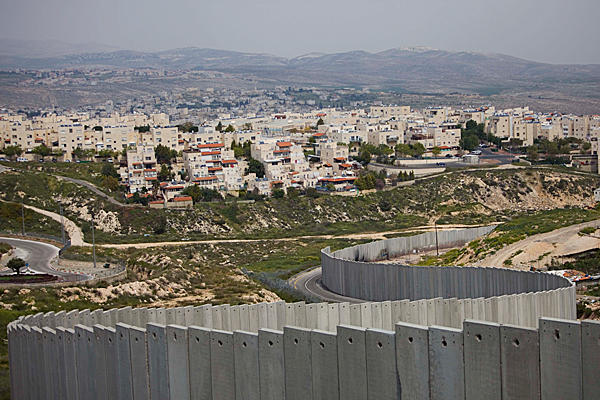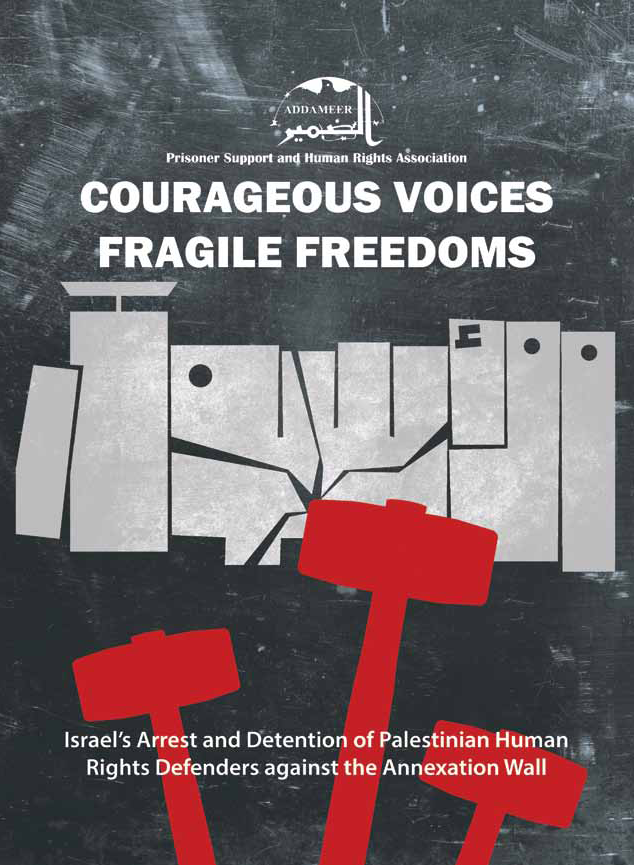Tag: Apartheid Wall
-
Firms active in the settlements are facilitating abuses of human rights – UN report says
24th January 2014 | European Coordination of Committees and Associations for Palestine | Brussels, Belgium The UN report is the result of a mission investigating Israeli settlements in the West Bank, including East Jerusalem. Information gathered by the mission shows that private firms have enabled, facilitated and profited, directly and indirectly, from the construction and growth of the…
-
Addameer Releases Latest Report on the Continued Targeting of Palestinian Human Rights Activists by Israeli Forces
13th January 2014 | Addameer Prisoner Support and Human Rights Association | Ramallah, Occupied Palestine Addameer Prisoner Support and Human Rights Association are pleased to announce the publication of its latest report ‘Courageous Voices, Fragile Freedoms’. The report examines Israel’s increasing use of arrest and detention of Palestinian human rights activists taking part in protests and…
-
Israeli army demolish a house in the Salfit village of Deir Ballut
29th November 2013 | International Solidarity Movement, Nablus Team | Deir Ballut, Occupied Palestine On Thursday morning at five am, the Israeli army demolished a house under construction, and left the area before the owner Ghaneem Mahmoud Abdullah Al-Karim or other villagers were able to arrive at the scene. It is believed that the Israeli…



